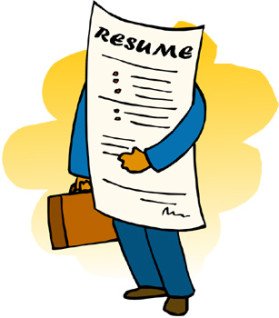Graduate CVs: Getting Past the Experience Question
In the competitive world of the modern job market, experience has become the golden ticket to an interview or job offer. If you have just come out of university, you obviously come to the table with either no experience or very little of this precious commodity. But in reality, as long as you are applying for jobs at the right level, it is no different to applying for a job at any other level in the job market. The key is to make sure you have the little extra’s on your CV that put you ahead of other candidates for a position and show that you are able to take initiative.
Volunteering is a great way to do this, and it will give you far more than just words to put in the experience section of your CV. It will broaden your horizons in all kinds of ways, allowing you to develop as a person and it can give you a chance to take on your first workplace responsibility. It provides an opportunity to be involved with vulnerable members of society, and you may even find that it opens your mind to careers you hadn’t even previously considered. If you are still in education, it might be wise to use some of your free time to volunteer before you reach a point of needing a job urgently. However, even after you graduate you can take on volunteer work, perhaps alongside a part time job.
Work experience can be another great way to fill in the experience hole, and it doesn’t necessarily mean slogging away for months with no pay. Work experience can be as short as a few days or a week and many companies will be able to accommodate you if you are willing to contact them and put yourself out there. Personal contacts are always a good way to set this up, so look to see if your parents, friends or anyone else you know can offer you some temporary work experience. A couple of days working in an industry can really help you to pick up some insiders tips, which can help you in an interview situation. Sometimes interviewers are looking for only a small amount of experience to know that you are not clueless, so this can give you an extra leg up.
Internships are similar, although these may be more difficult to sustain if you are low on funds. But they are an even better way to get insight into the industry and may even directly lead to jobs offers at the end or at least put you in good stead within that company for any future positions that come up.
Taking part time work is also sensible. If you work while you are still in education this can be a good sign to future employers. Most people who are new to employment go through a steep learning curve when they start and this is obviously a time when mistakes can be made. However, part-time employment shows that you have already done some of this hard work and it makes it seem like less of a gamble for a company to hire you.
When it comes to the actual application process, there are a few things that will make you more successful. It is better to apply to a few jobs, with a very good application than dozens of jobs with mediocre ones. Middling applications won’t get you noticed and additional rejections will just knock your confidence.
In terms of covering for lack of experience on your CV, there are a few changes you can make to show your strengths. Look carefully at any person specification and then at all your skills and experience. If IT skills are very important and you have always had an extra-curricular interest in computing then highlight the skills section of your CV first. If your voluntary work or internship is the most relevant, then find a way to re-structure your CV to highlight these experiences first. Essentially, there is no one size fits all approach for a CV, but you need to play to your own strengths, particularly for entry-level jobs. Here is a great resource if you want information on how to structure your CV.
So, if you feel you have no experience, then there are many options for you change this. Volunteering, work experience, internships and part-time jobs all help to develop your skills and will build up your confidence to apply for the jobs you really want. The key is to collect as many experiences as possible, as these will help you gain confidence and develop as a person – attributes that are useful both in and out of employment situations.
Category: Student News







